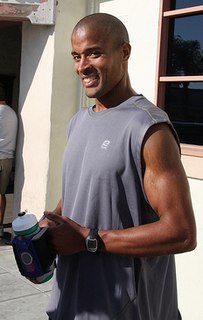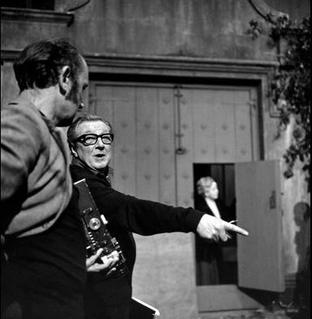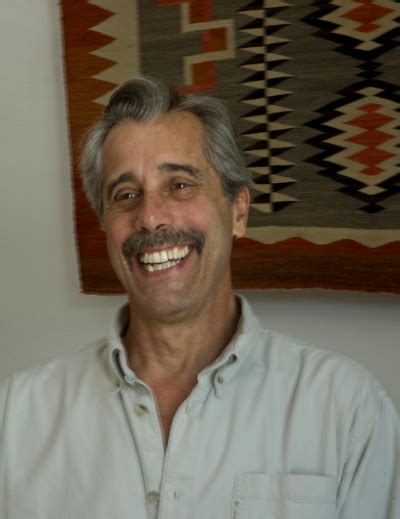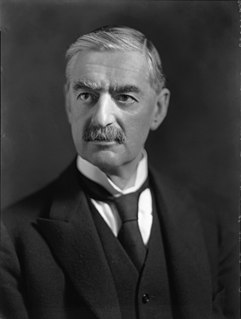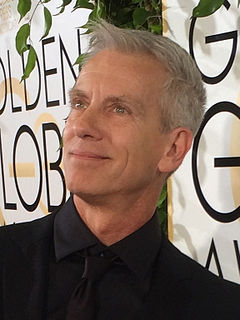A Quote by David Goggins
Self-talk, for me, has been the biggest thing in my life. A lot of us have a dialogue that is crap. It's a crappy dialogue. We live in a world right now that is very external. Everything is very on the surface. Superficial. Everything. And what we're telling ourselves is what we see on TV.
Related Quotes
On the whole, dialogue is the most difficult thing, without any doubt. It's very difficult, unfortunately. You have to detach yourself from the notion of a lifelike quality. You see, actually lifelike, tape-recorded dialogue like this has very little to do with good novel dialogue. It's a matter of getting that awful tyranny of mimesis out of your mind, which is difficult.
When you're doing those operation scenes, you not only have to be on top of the dialogue and the rhythm of the dialogue and what's happening dramatically, but you've got to technically get the rhythm right, so that everything is fitting with the dialogue at the right time. And you're performing the operation to the audience that's watching it. Thackery has to present it, as well. In some ways, that's the most challenging.
If everything that is happening in the world is traceable to our inability to understand what is happening in the world. If there is such a thing as original sin, it's the human capacity to get everything wrong, right from the beginning and all the way up to now, and that's what the old storytellers have been telling us, including the Creek Indians who told this story along with every other tribe on earth.
The end comes when we no longer talk with ourselves. It is the end of genuine thinking and the beginning of the final loneliness. The remarkable thing is that the cessation of the inner dialogue marks also the end of our concern with the world around us. It is as if we noted the world and think about it only when we have to report it to ourselves.
I believe very much in a dialogue between buildings - I believe it's always been there. I think buildings have different identities and live very well next to each other. We always have the shock of the new, and that's fine. The renaissance style is totally different from the medieval, and they have a dialogue across time.
I think we should be very clear on this. You know, this country was founded on the principles of the Enlightenment... It was the idea that people could talk, reason, have dialogue, discuss the issues. It wasn't founded on the idea that someone would get struck by a divine inspiration and know everything right from wrong. I mean, people who founded this country had religion, they had strong beliefs, but they believed in reason, in dialogue, in civil discourse. We can't lose that in this country. We've got to get it back.
You know, this dialogue is only helpful when we come, both of us, to a point where we realize that no dialogue is possible, that no dialogue is necessary. When I say understanding or seeing, they mean something different to me. Understanding is a state of being where the question isn't there any more. There is nothing there that says, "Now I understand!" That's the basic difficulty between us. By understanding what I am saying, you are not going to get anywhere.
This is a sad day for all of us, and to none is it sadder than to me. Everything that I have worked for, everything that I have hoped for, everything that I have believed in during my public life, has crashed into ruins. There is only one thing left for me to do; that is, to devote what strength and powers I have to forwarding the victory of the cause for which we have to sacrifice so much... I trust I may live to see the day when Hitlerism has been destroyed and a liberated Europe has been re-established.
The way you write dialogue is the same whether you're writing for movies or TV or games. We use movie scriptwriting software to write the screenplays for our games, but naturally we have things in the script that you would never have in a movie script -- different branches and optional dialogue, for example. But still, when it comes to storytelling and dialogue, they are very much the same.
You know, the technology was at the right place for us to build this world. The most difficult thing about doing The Croods was no doubt the building of the world. Every single thing in this film is organic. Organic things are tough. Very very labour intensive. And we have no man-made structures. You could argue that everything in this film is really an exterior. Even the interiors of the cave are exteriors. So building this world was the biggest thing of all, and the technology was there to do it.
When I go to the cinema, I want to have a cinematic experience. Some people ignore the sound and you end up seeing something you might see on television and it doesn't explore the form. Sound is the other picture. When you show people a rough cut without the sound mix they are often really surprised. Sound creates a completely new world. With dialogue, people say a lot of things they don't mean. I like dialogue when it's used in a way when the body language says the complete opposite. But I love great dialogue I think expositional dialogue is quite crass and not like real life.
